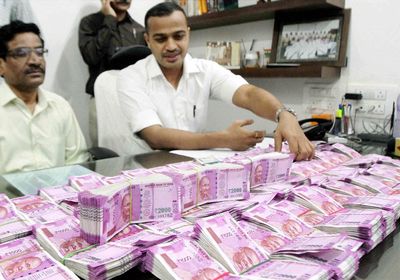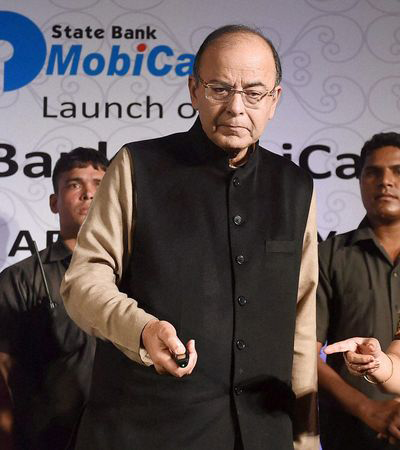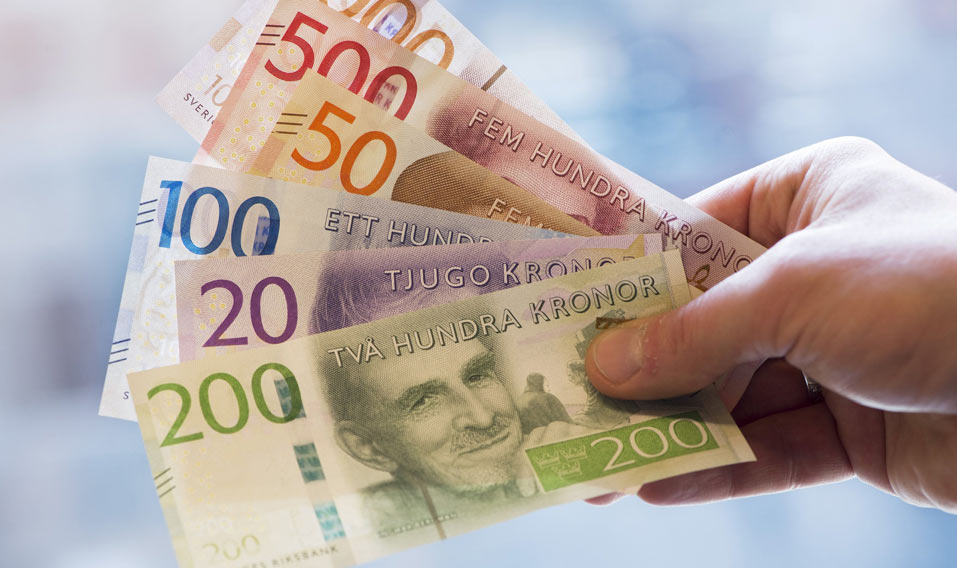Nations take pride in home minted coins, but not in Scandinavia where it is unwelcome to deal with cash. Scandinavian countries—Norway, Sweden, Denmark, Finland and Iceland—have gladly closed down their mints forever. The last mint in the region is due for closure this month end.
Sweden is on the doorstep to a cashless economy. Paper currencies and coins are slowly receding—nearly half of them have gone underground in the last seven years and at this rate, by 2030, Sweden might go fully cashless. About 50 per cent of the Swedish kronor are lying unused in houses or in possession of criminals. It has become too unusual to pay with cash that people smell something fishy if anybody takes out cash from his wallet. If you take too much currency to banks, they may call the police suspecting you to be a criminal. However, two-thirds of Swedes think it is people’s right to have money in physical form whether they wish to use it or not.
In Sweden, most payments are done using debit or credit cards, as business firms may refuse to accept cash. More ATMs are being pulled out of rural areas. A Riksbank (Sweden’s central bank) study says that only 15 per cent of Swedes pay by cash. Cash deals represent just 2 per cent of the Gross Domestic Product of the country's economy, down from 10 per cent in 1990.
Swedish banks charge negative interest on deposits. So there is a strong urge to spend money early rather than saving for fear of losing its value. Swish, a mobile app jointly developed by six Swedish banks, is very popular app for digital cash transfer. It renders instant bank transactions from your mobile—users find it easy to transfer money from their account to any other account even while on travel.
Bank robberies in Sweden are unheard of these days. In 2008, there were 110 bank robberies but only16 in 2011. With less cash dealings going on, Swedes find it increasingly difficult to cover up their money dealings. Falling crime rate, less corruption and financial frauds and better compliance of tax laws are among the the positive results of cashless transactions.
 Crime branch police displays seized currency of rupees one crore and forty thousand in new notes in Thane on December 14. Photo: PTI
Crime branch police displays seized currency of rupees one crore and forty thousand in new notes in Thane on December 14. Photo: PTI
In spite of the many advantages of digital money, some honest people prefer privacy in their monetary matters. They want to pay money discreetly and impersonally that make the dealings anonymous. The Riksbank is planning to develop e-krona, a virtual currency based on blockchain technology like bitcoin.
Cashless revolution
Advanced countries have started discouraging people from dealing in cash. In France and Italy, it is illegal to pay more than 1,000 euros in cash. In the UK, business needs the taxman’s permission to accept high volumes in cash. It is all the more difficult to posses illegal wealth in countries like Norway and Sweden where personal income tax returns are open to public eye.
Not only rich nations, but some of the poor countries are also in the race for leaving their currency behind. Somaliland, an independent state, carved out war-torn Somalia in 1991, has been greatly successful in payments using mobile phones. The number of electronic transfers in Somaliland is far more than in many developed countries.
Another African country that has a made great stride in cashless trade is Kenya. People get salarees, pay school fees and make purchases using a mobile based money transaction app called M-Pesa. The mobile wallet is used by nearly 44 per cent of Kenya's 4.5 crore population. Though criminal activities involving finance have come down, mobile phone thefts have become a menace in the country.
War on cash
 Union Finance Minister Arun Jaitley launching 'State Bank Mobicash' in Mumbai on December 17. Photo: PTI
Union Finance Minister Arun Jaitley launching 'State Bank Mobicash' in Mumbai on December 17. Photo: PTI
More than 95 per cent of India's money dealings have been in paper currency. Finance Minister Arun Jaitley said that the government would not replace the same quantum of paper currency. That means people will have to seek digital options for paying money. A cashless future is the real intention behind the government’s decision to withdraw 86 per cent of the currency in circulation.
In India, high penetration of mobile phones makes the situation highly favourable for mobile wallet apps. There are a few successful mobile wallet companies doing brisk business now. Paytm, State Bank Buddy, Momoe, Mobikwikm, PayUMoney, Citrus, HDFC Chillr, LIME are a few among them. The number of Paytm's new users has gone up by at least three-times. Transactions using plastic cards too have taken a quantum leap. The government announced that it would soon launch an Aadhar based digital transactions for everyday use. People will have no option but to adapt to a digital payment revolution.
Social scientists are looking at various aspects of dealing with digital currency. Can children be given cards? Are old and uneducated people capable of dealing with digital cash? There are other issues like cybercrime, banks charging transaction fee and privacy of customers. Corrupt people in India have converted their illegal earnings into not-so-easily traceable assets like gold and real estate. In the last three years, cybercrimes—including financial—have almost tripled in India. Transparency and trust are still ingredients for a successful economy.





